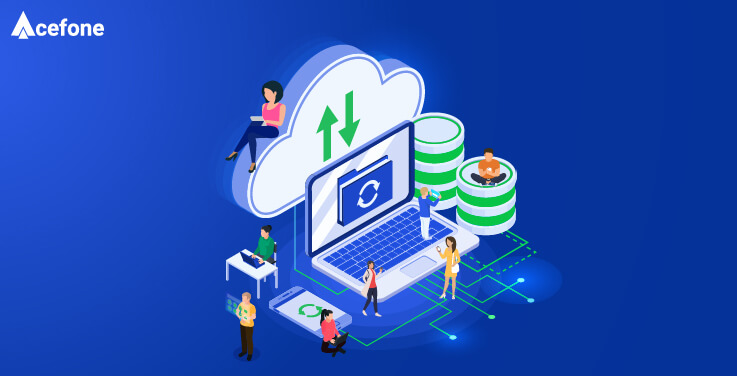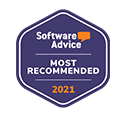We regularly come across terms like baby boomers, Gen Z, and millennials in multiple conversations about ‘generational gaps’ and the tech-savviness of millennials are often one of the points of discussion.
For the uninitiated, millennial refers to anyone who was born between 1980 and 2000, effectively putting them in the age bracket of 21-41 currently. As of 2021, there are ~831 million millennials worldwide, representing about 25% of the world population!
Millennials are often associated with technology and gadgets and rightly so, owing to their unique position in the long and still unravelling history of this world. Born and raised alongside the ‘World Wide Web’, millennials have experienced the growth of the first search engine and used the first smartphones ever made.
Constantly connected to digital communities through social media, millennials boast of a unique set of experiences that have moulded their life.
Digital proficiency is distinctly exhibited by millennials and has allowed them to absorb the velocity of changes brought in by cloud technology.
Cloud technology is one of the latest technological offerings which provides on-demand services like storage, computing, and analysis, through internet-connected devices. It accomplishes these tasks by distributing multiple applications across remotely located servers that can be accessed, as required.
In today’s world, the use of cloud technology has become a ubiquitous habit in personal as well as professional circles. You are essentially relying on cloud technology when you are accessing your Instagram feed on your smartphone or joining in your team meeting through Zoom or any other teleconferencing tool. It has effectively penetrated into the lifestyle of millennials as well and yet, there remains much to be explored.
The smartphone age
The need to have the latest and updated version of gadgets is another trait closely associated with millennials.
This is visible in the healthy yearly rate at which newer models of smartphones are storming into the market. These seismic shifts in smartphone consumption could not have been possible without the arrival of cloud technology which powered the ability to host newer services like computing, intelligence or communication, on remote online servers.
As of 2019, it was estimated that 92-95% of millennials in the UK possessed a smartphone. This trend is expected to sustain, if not rise, post the pandemic, where almost everyone relied on their smartphones and laptop devices for virtually everything. Millennials are at the center of the telecommunications revolution—their lifestyles are dependent on mobile technology—whether for social media presence or workspace duties.
Millennials in the workspace
Millennials are at the ideal age to hold important positions in workspaces globally, thus making them the largest human workforce for the foreseeable future. The direct result of this over-representation is the pressure on businesses to adopt technology and innovation in the workplace since millennials prefer to work in businesses that embrace new technologies.
Due to their growth alongside modern technology, millennials strongly believe in a workplace that doesn’t restrict their freedom and allows flexibility—whether in terms of working hours or location.
Remote working received an impetus in terms of adoption due to the pandemic as well. To accommodate these needs, companies are adopting cloud technologies that enable teleconferencing and online collaboration thus facilitating remote or hybrid work models.
The adoption of cloud solutions has been critical towards unlocking the complete potential of remote work, especially in the post-pandemic era.
Beyond teleconferencing and collaboration tools, cloud technology also enables an individual to access office-based resources (like data repositories or computing servers) through hosted data banks from anywhere and anytime using internet-connected devices and the correct user credentials.
Most millennials have sufficient experience with their devices and cloud resources to be aware of the security risks posed by cybercriminals. Therefore, they don’t fall prey to the usual schemes, like the ‘Nigerian Prince’ scam which fooled several people in the past.
Another advantage of cloud systems that appeals to millennials is their sustainability owing to their low carbon footprint. Millennials are eco-warriors—they believe in embracing technologies that have been designed while keeping the environment in mind. The same goes for companies. This is where cloud computing turns out to be the ace in the pocket due to its low energy consumption design and reduced carbon emissions.
The personal lives of millennials
The concept of space and freedom has taken a new meaning in the millennial generation wherein the right to privacy and personal space is an essential aspect of their lives. Millennials require their own physical space and now, they are also looking for personal spaces on the digital front.
Computing storage has become a major factor while building one’s PC or laptop system since normal hard drives or extended RAMs are no longer sufficient.
These requirements are directly linked to the personal ambitions and lifestyle choices of millennials, who are as fervent about their personal projects as they are required to be in their professional workspaces.
One of the reasons for demanding flexible workspaces is to be able to devote the rest of their time for self-development activities or simply, side hobbies. Therefore, personalised access to computing resources becomes an automatic necessity.
Here, cloud storage and computing is the saviour once again! Millennials are choosing cloud storage options (like AWS, or Azure Cloud) over hardware options through direct comparison with the alternative method of buying several hard disks.
If viewed through this lens, cloud storage and computing offer several benefits over the exhaustive practice of safeguarding fragile hard drives. We discuss some of these benefits that make them attractive to millennials:
- Cost-effective models: One of the USPs of cloud technology is the fact that it is built and delivered on a distributed server model, bringing down the infrastructural costs significantly. This decrease in cost is directly passed onto the users (millennials, in this case) which is further complemented by cost flexible subscriptions models in terms of the payout period (yearly or monthly) as well as specific features required by the user.
- Remote accessibility: Cloud technology allows on-demand access to available resources from anywhere through any internet-connected device. You are not even required to carry your laptop with you everywhere! This allows millennials to work remotely from the location of their choice and is even better suited to people who work on the road, such as freelancers or bloggers.
- Automatic backup: All of us have had old hard disks on them which stopped working one day out of the blue, leading to an irreversible loss of stored data. Cloud storage takes care of that by incorporating the feature of auto-save/sync which automatically backs up user data in the same format, without any manual instruction.
All it requires is user approval on the backup frequency and the cloud takes care of everything else!
You can also opt for DRaaS. Data Recovery as a Service will help you to restore any lost data from your cloud-back up servers. So, if any disaster or natural calamity were to strike, your data will always be secured on the cloud.
Looking to the future
As we have observed, the cloud has penetrated several important aspects of almost every millennial’s life today—whether it might be in their professional environment or their personal home space. Many consumer-facing businesses are now trying to implement strategies that are in line with the needs of the millennial population.
Why? Simply because they form the largest consumer group in the world, along with Gen Z (their successors in the generational hierarchy).
We take a look at some of these industries wherein the incoming digital transformation would create millennial-friendly products and services.
- Online shopping: Digital transformation in the traditional brick-and-mortar retail stores is critical to ensure that businesses survive through this change.
Millennials are very attached to their smartphones and prefer to complete all their tasks through their devices. Integrating the physical store through digital communication channels would enable omnichannel support to the customers, which can be implemented through the cloud.
With the help of a cloud service provider, your entire communication can be shifted to a VoIP-based model. A hosted phone system will greatly enhance your online communication capabilities and it also helps to improve your team collaboration. Moreover, you can also use it for your offline marketing campaigns.
With loads of integrations available for hosted cloud phones, you can track all your customer data and keep track of your employees’ performance at the same time.
Through this integration, retailers can also provide real-time updates on delivery statuses of ordered groceries as well as provide a live catalogue of the items available in each physical store, through the user’s smartphone-based app. Cloud can be extended further to act as a guide to a customer in one of these stores; handing out directions to the customer looking for a particular item in the store, like Google Maps.
- Financial institutions: Millennials often complain about the rigorous and frictional onboarding process employed by most banks worldwide, leading to high digital abandonment rates.
They prefer carefully designed customer journeys that minimise their number of clicks and thus, maximise the ease of using the particular service. Banks can learn and design products that are faster and easier to use.
With the power of the cloud, businesses in different industries, such as finance, can deploy a CCaaS solution. Contact Center as a Service helps streamline customer interactions and provides omnichannel media for customer support. The experience of the customers can be enhanced significantly with the features that it offers.
Instead of asking your customers to go through tedious physical forms, the cloud can be used by banks to deliver automated customer journeys that constitute digital onboarding for purposes ranging from opening a savings account to cancelling a credit line.
The use of net-banking applications is one such example that has enabled users to accomplish a lot of manual tasks while sitting at home through their mobiles.
Conclusion
This generation knows no stopping and with the inclusion of Gen Z, the digital revolution is bound to continue. Judging from the pace of technological advancement and adoption, these changes are just the tip of the iceberg—cloud technology has much more ground to cover before it unleashes its complete potential.
To know more about this, get on-call with our cloud experts at 1888-859-0450 or drop an email at [email protected]!
Acefone provides a broad range of cloud communication services to businesses of all sizes, which includes Hosted Phone Systems, Free Phone Numbers, and Cloud Contact Center Solutions. Being the UK’s leading provider of VoIP service provider, we always strive to provide excellent customer service and high-quality custom solutions to our customers.














